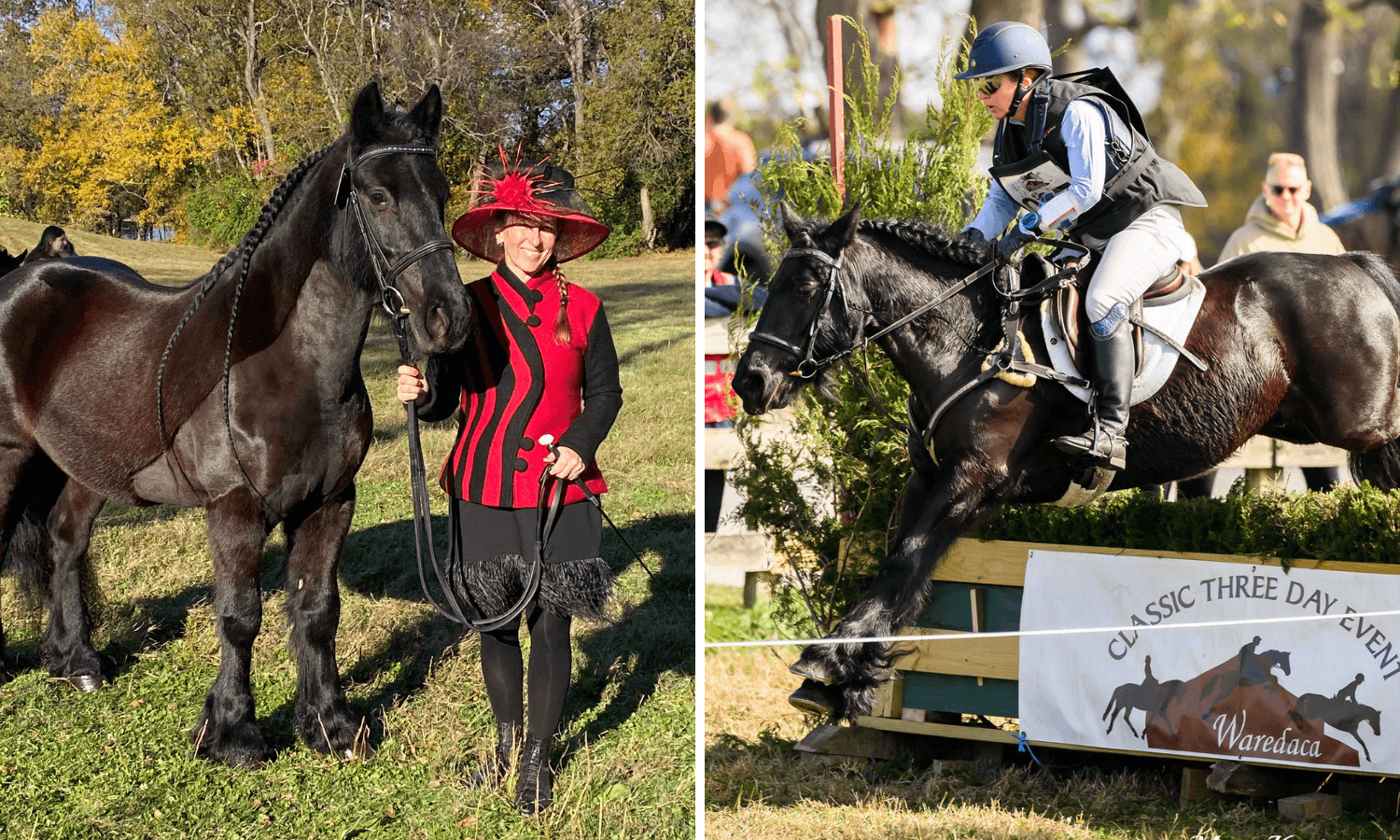USEA Events A-Z: Full Moon Farm Horse Trials
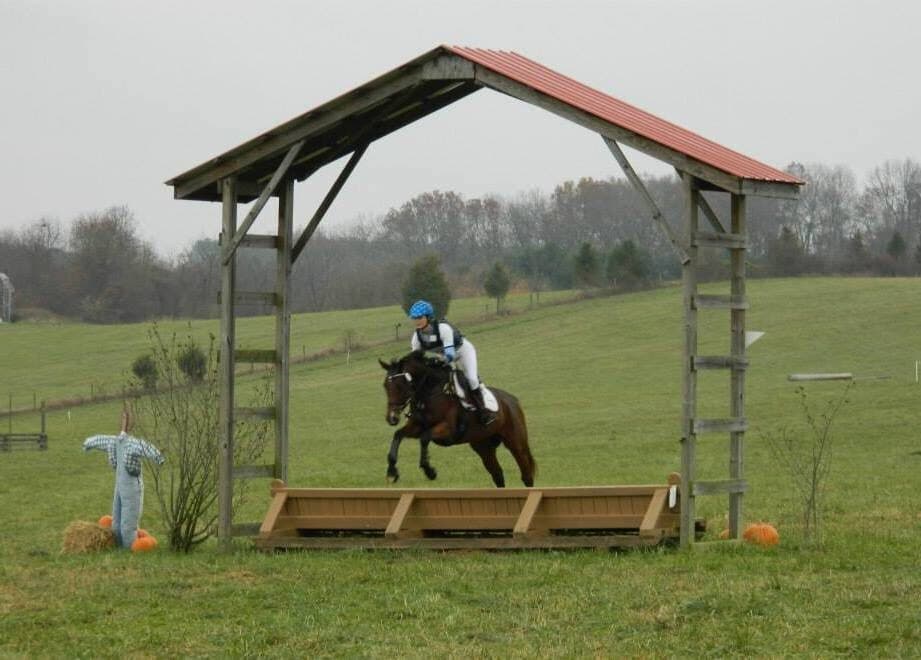
Full Moon Farm in Finksburg, Maryland (Area II) hosts two USEA recognized horse trials in July and November of each year in addition to two unrecognized events in April and June, offering Introductory through Preliminary/Training level. Full Moon Farm is a boarding and training facility with an active lesson program that caters to both eventers and hunter/jumpers and hosts clinics, schooling shows, and cross-country schooling days throughout the year.
In 1994, Karen Fulton was working for the Baltimore Zoo and her husband, Stephen, was working as a farrier. The two had been married for seven years and were ready to start a family, but knew they wanted to have the freedom and flexibility to be very hands on with their kids. Karen had been a riding instructor prior to working at the Baltimore Zoo, and since they both had experience with horses they decided to buy a farm. “We knew that we could do this,” said Karen. “The idea was to have a home base where we could teach lessons, board horses, and that would allow me to be home and raise our kids.”
So, Karen and Stephen purchased 16 acres of land northwest of Baltimore in Finksburg, Maryland, and got to work. Over the next few years they worked on making improvements to the farm, including building an indoor arena so their lesson program could thrive year-round as well as a massive 200 by 400-meter all-weather outdoor arena that could be divided up and used for multiple activities simultaneously.
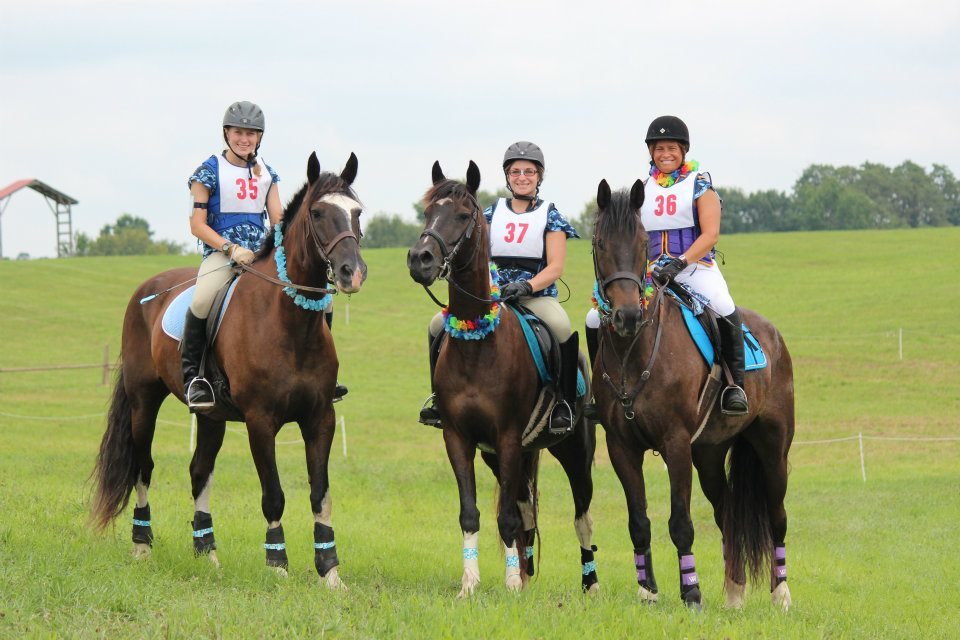
“1997 was a big year for us,” laughed Karen. That year, they completed the indoor arena, got involved with the National Capital Equitation League (NCEL), and began hosting unrecognized schooling shows, both hunter/jumper shows and horse trials. The Fultons leased the land that borders the back of their property in order to build cross-country courses for their unrecognized events, and after a few years they purchased that 65-acre parcel, creating the 80-acre property on which Full Moon Farm sits today.
Having the ability to school cross-country right in their backyard has been a huge advantage for the Fultons and their program. Karen elaborated that having all that land to ride out on provides an opportunity for riders, especially at the lower levels, to get a lot of practice riding in the field without the arena fence to support them. The property is very hilly as well, which gives riders the chance to get comfortable riding on terrain. “Buck Davidson has come and done clinic here and he said, ‘You guy’s don’t even realize what you have here.’ It’s a huge advantage,” said Karen.
The cross-country course at Full Moon Farms doubles as a hay field, so their competition calendar is dictated in part by where the hay is at in its growth cycle. “Our spring unrecognized event is before the grass is too tall, the July competition is after we’ve made our first cutting of hay, and for our November horse trials we’re done with hay for the year,” Karen explained.

In 2012, the Fultons made the decision to become USEA recognized for their November horse trials, and while they already had many necessary elements in place from their years of running unrecognized events, becoming recognized with the USEA motivated them to step up their game, particularly when it came to their cross-country courses. “It made us better,” recalled Karen of Eric Bull coming on board as their courses designer for their USEA recognized event. “It made our courses better because we had somebody who’s great come in with a fresh eye and say things like, ‘Why are you doing that? Let’s do this. Let’s move the start across the road,' and just totally flip us upside down. You see things too much and you get too close and so you just always do it that way.”
Karen and Stephen serve as organizers for the events but wouldn’t be able to make it happen without their team of dedicated supporters. Perry Hudkins, who relocated to Vermont from Maryland several years ago, makes the trek down every year to serve as the event’s secretary. “She’s been our secretary literally since the first event we ever had, and she’s been our secretary for every event since,” said Karen. Hudkins also does all the scoring for the event. Julie Quinn is Full Moon Farm’s volunteer coordinator as well as the mother of one of Karen’s students. She also happens to live right next door to the farm. “She is possibly the nicest person in the entire world, and she keeps absolutely everything straight,” said Karen. “Honestly, without [Perry and Julie] I can’t imagine trying to pull this off.”
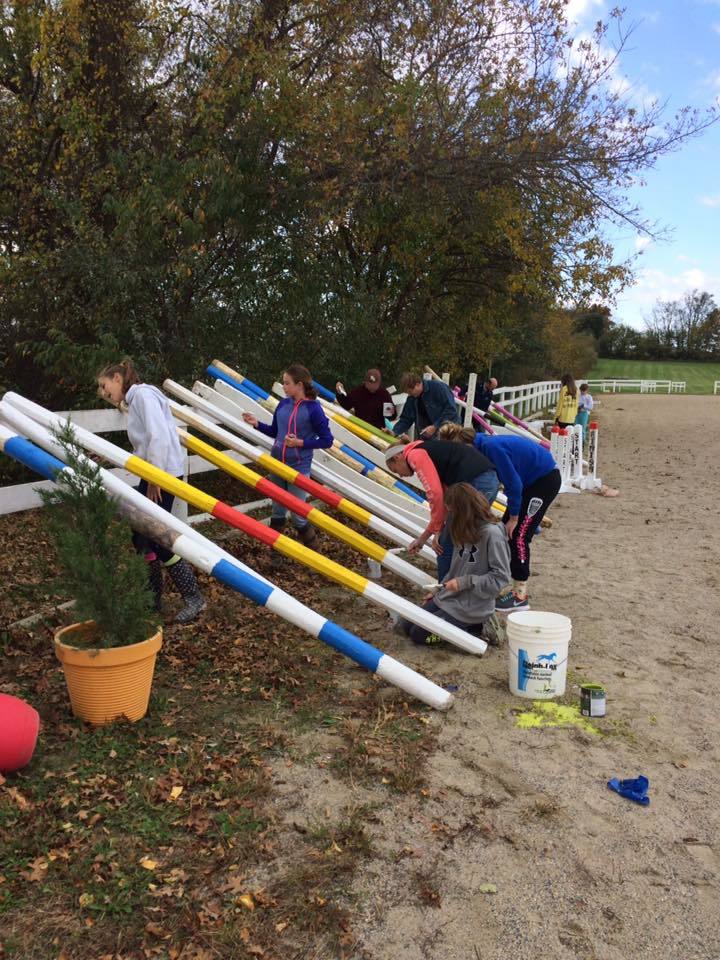
Everyone at Full Moon Farm gets involved in some way with the events each year. “We’re very big on volunteerism,” explained Karen. The whole Full Moon Farm family chips in, from the other instructors right on down to the parents of the students. “We’ve tried to give everybody bite-sized chunks of stuff to worry about . . . We have a great time because all of our people have skin in the game. That’s the appeal of it, and that’s the way it’s always been.”
Karen knows that it’s the people that make every event at Full Moon Farm special. “Everyone’s so friendly because everyone’s excited to do this. We really want to put on a good show . . . I look at it as inviting guests to your house, you’re putting on a party and you want to put on the best party that you can.” And the team at Full Moon Farm works hard to put on a great event, from the competitors party the night before to the thoughtful decoration of the cross-country and stadium jumps.
While they’ve been hosting their July “Aloha” event as an unrecognized for years, it was just six weeks from the start of the event the first time they hosted it as a USEA recognized event in 2016. A spot had opened up on the calendar at the last minute and when the Area II Chair asked if Full Moon Farm was interested in taking over the date, Karen said they took full advantage of the opportunity. “We didn’t even have an omnibus listing because we were so close to the date, but we got our butts in gear and we did it and it was great. It’s fun to decorate because it’s all Hawaiian with a beach time. It’s super fun!”
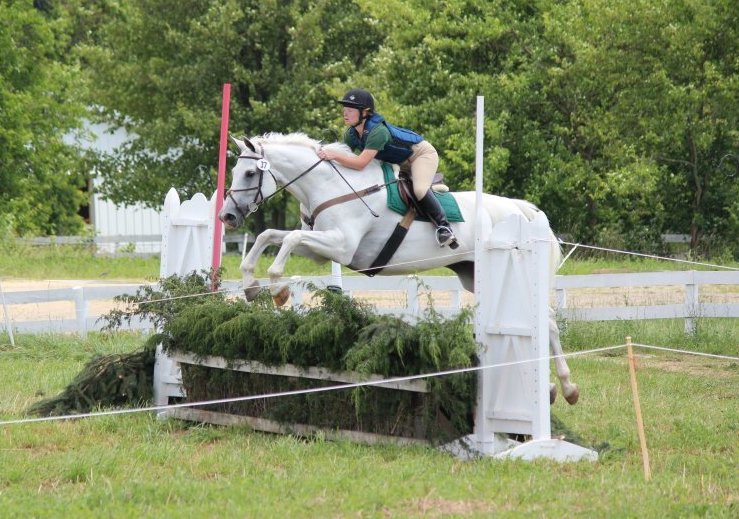
For the last nine years, Full Moon Farm has hosted what they call the “quarter-star,” their unrecognized long format event for Introductory through Training level, during the last week of June, a month prior to their July event. Competitors experience all sorts of educational opportunities, everything from steeplechase lessons and pacing practice to lectures from the dressage judge, all taught by professionals who come in and offer their expertise. Karen explained that they’ve had riders come as far as Texas and Oklahoma, and even riders from Costa Rica have come to participate. “The long format provides a great educational opportunity, and we live in a great area for it,” she said.
Above all, Karen explained that they truly care about putting on a quality event and providing a positive experience for all their competitors. “[Riders] will find fair and safe courses for the level, both for show jumping and cross-country, and they’ll have a really good time. It’s a good place to learn how to event, but we have proper courses. We’re really good at doing Training through Introductory level, and I think instead of feeling like you’re an afterthought at a USEF competition, you can tell somebody put some though into the lower level courses. That’s what we’re shooting for, so people come back!”
The USEA is profiling the history behind all USEA recognized events in the USEA Events A-Z series.



